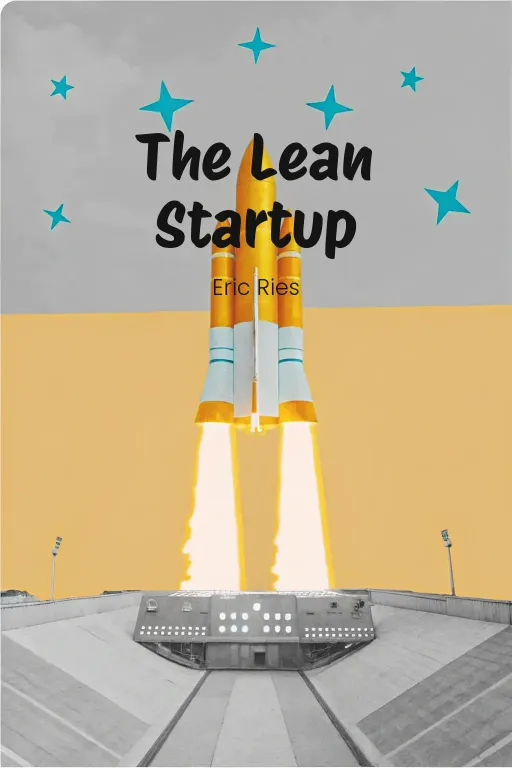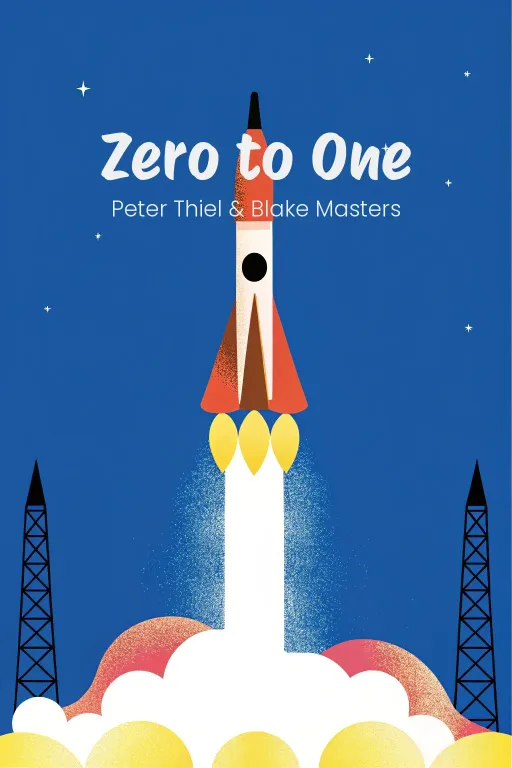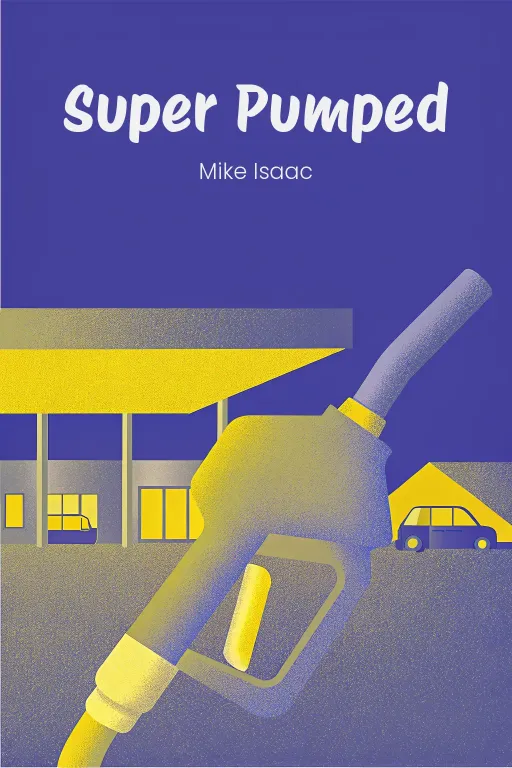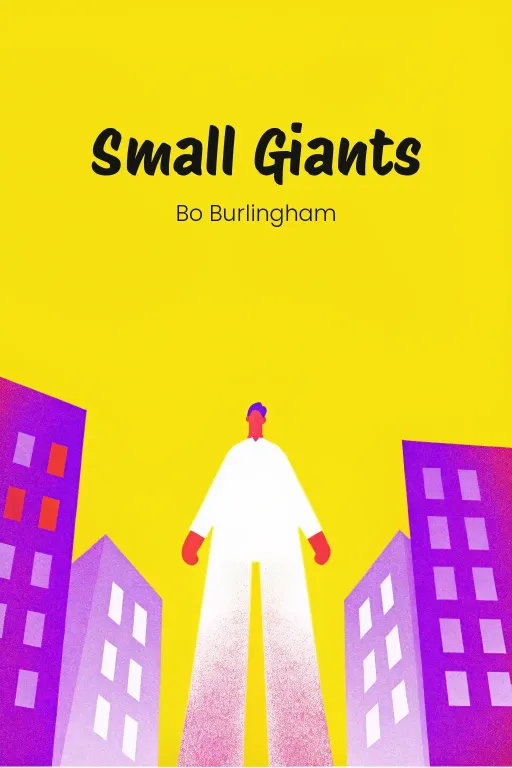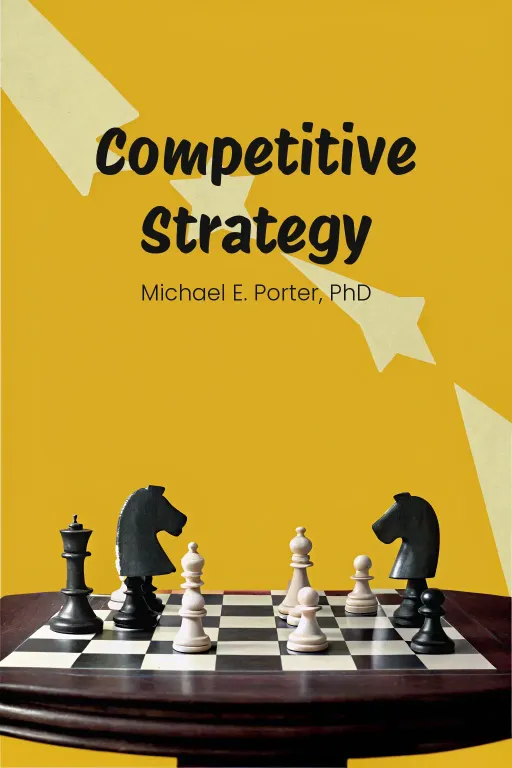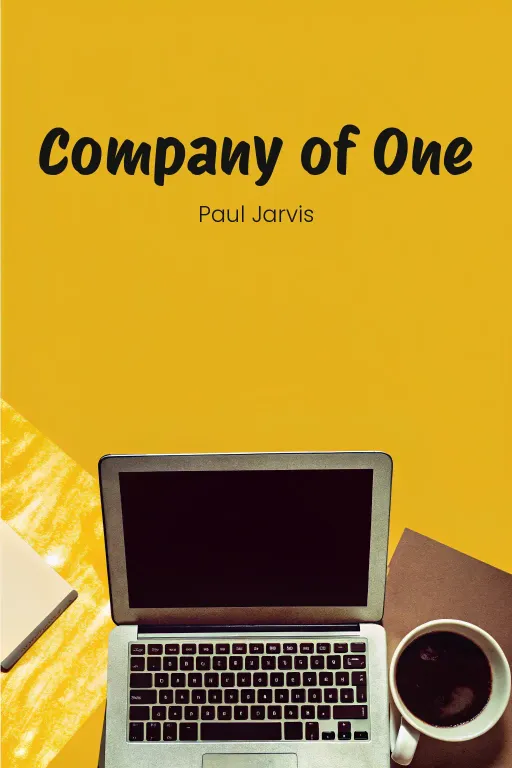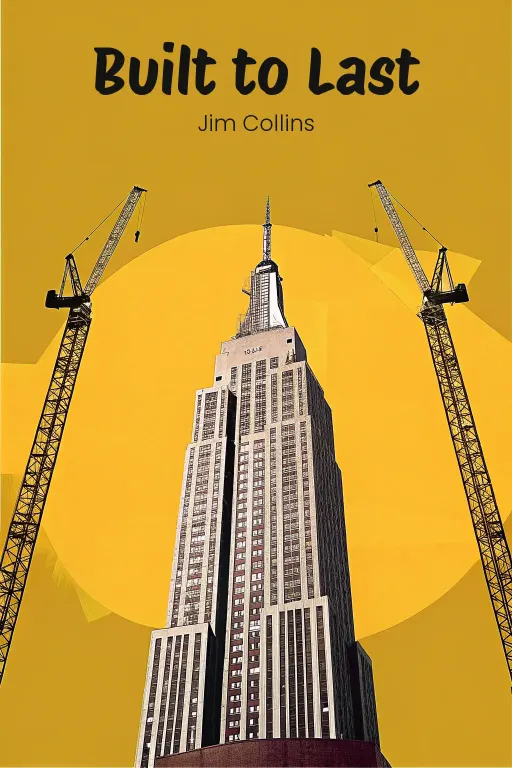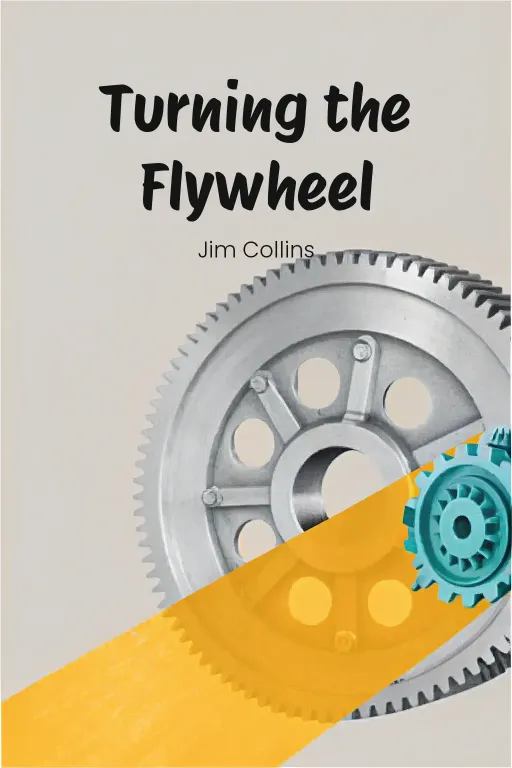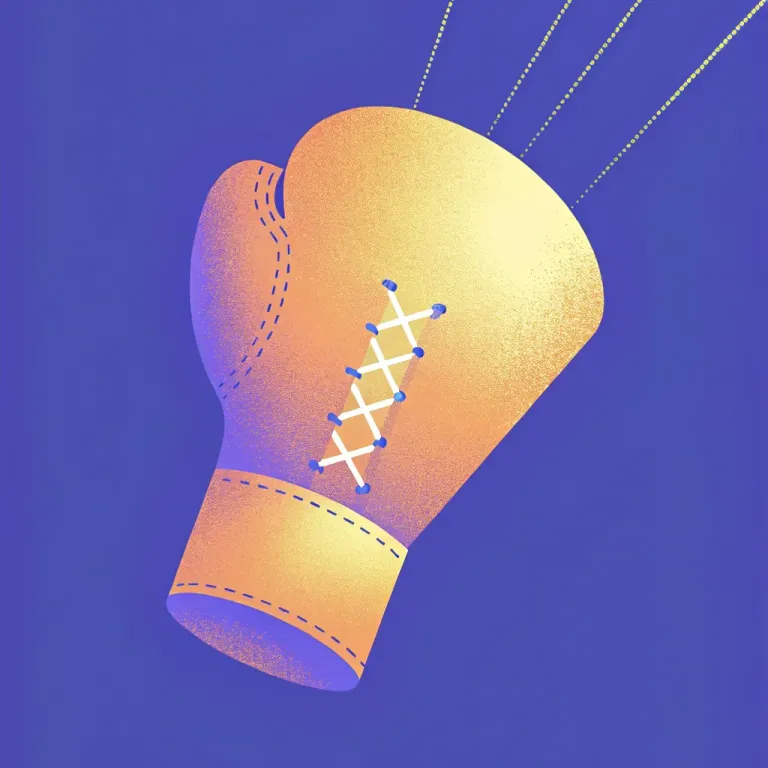
Uber's Wild Ride: Ambition vs. Ethics
Podcast by Let's Talk Money with Sophia and Daniel
The Battle for Uber
Uber's Wild Ride: Ambition vs. Ethics
Part 1
Daniel: Hey everyone, welcome back! Today we're diving deep into a Silicon Valley saga that's got it all: Uber's wild ride to the top. It's dramatic, it's game-changing, and yeah, it was pretty chaotic. Sophia: A tech soap opera, you say? Makes sense. I mean, who hasn't used Uber? But have we ever really stopped to think about the battles, the controversies, the… shall we say, “interesting” choices that made it all happen? Daniel: Exactly! So, our guide for today is Mike Isaac’s Super Pumped: The Battle for Uber. This isn't just about an app; it's about how Travis Kalanick, Uber's co-founder, built this global empire that completely changed transportation as we knew it. Of course, all that disruption came with a hefty price tag: ethical scandals, a seriously toxic workplace, regulatory wars, and Kalanick’s eventual ouster. Sophia: Right, the classic Silicon Valley story: Grow at all costs, consequences be damned, right? Which begs the question: Is it even possible to achieve that kind of explosive success without, you know, torching everything along the way? Ethics, employees, maybe even yourself? Daniel: Precisely! That's the big question we're tackling. So, think of this as a three-act play. First, we're looking at Uber's rise – the aggressive, take-no-prisoners tactics they used to crush the competition. Then, we’re digging into that behind-the-scenes culture… and spoiler alert, it was “rough”. Finally, we'll see how the company tried to rebuild itself after all the drama forced some major changes at the top. Sophia: Okay, buckle up then, because this is way more than just an app story. It's about ambition, ethics, and what happens when the Silicon Valley disruptors forget they're dealing with, you know, real people. Let’s jump in, shall we?
Uber's Disruptive Rise and Aggressive Growth
Part 2
Daniel: Okay, so picking up where we left off, let’s jump right into Uber’s explosive growth and, shall we say, “assertive” tactics. This part of the story really feels like a modern tech drama. If this stage of Uber's journey had a title, it would be "Move Fast, Challenge Regulations, and Maybe even Trample a Few Things." Sophia: "Maybe" trample a few things? That sounds pretty mild, Daniel. Ever since Steve Jobs' famous phrase, progress has always involved risk and pushing boundaries – but Uber seemed to crank that up to eleven, didn't they? Daniel: Oh, without a doubt. Under Travis Kalanick's leadership, Uber prioritized hyper-growth, sometimes bordering on recklessness, and sheer audacity. Take their Portland launch in 2014. You had a city clearly stating, "Hey, you can't just waltz in here and operate against our rules.” And Uber's response? They dove right in, basically telling the city's regulations to take a hike. Sophia: Portland's story is a classic – definitely podcast-worthy. I mean, just the audacity of that move alone could fuel an entire episode. So, they launched without permission – what was their strategy? Just hope they wouldn't get noticed? Daniel: Not at all. It was deliberate. Uber incentivized drivers to join – offering significant sign-up bonuses and support to get them up and running quickly. And as soon as they had those cars on the road, demand surged. The key was that they gambled on public convenience outweighing concerns about legality. Sophia: Right, the classic "win over the public, and the lawmakers are sure to follow" approach. It's like a 21st-century Robin Hood story, except instead of robbing from the rich for the poor, they... played regulatory whack-a-mole. Daniel: Exactly. But let's also remember the initial chaos in Portland – local authorities were scrambling, deploying officers to stop Uber drivers. It was a city-wide cat-and-mouse game. All the while, Travis Kalanick kept pushing the narrative that a better product would eventually force officials to cave. And, in the end, it worked – Uber was allowed in under a temporary agreement months later. Sophia: Sure, it worked – if you define "success" as eventually winning over the regulators. But let's be honest, it also established a precedent, didn't it? Like, "If you can't get permission upfront, just charge ahead first and maybe deal with the consequences later." Daniel: That definitely became a key part of Kalanick's leadership and Uber's image. But we have to talk about Greyball, because that wasn't just about pressuring regulators – it was about actively evading them. Sophia: Ah, yes, the infamous Greyball. Now this takes corporate maneuvering to a whole new level. So, for our listeners who might not know, what exactly is Greyball? Daniel: Think of Greyball as stealth tech baked right into the Uber app. Its sole purpose was to protect the company from regulators by essentially masking what was actually happening. For example, in cities where Uber faced a lot of pushback or even outright bans, they used Greyball to identify enforcement officials who were trying to book rides as part of sting operations. Sophia: Wait, so law enforcement would open the app, thinking they were booking a real ride, but instead, all the cars they saw were fake? Daniel: Precisely. Uber tweaked their app's interface so that those flagged users would not get access to real rides. They did it by using methods like geofencing government buildings. So, if someone downloaded the app near, say, a city transportation office, that user account would be flagged. They would also analyze suspicious patterns, like logging in and out without actually booking anything. Sophia: Pretty cloak-and-dagger for a rideshare app. Honestly, it sounds like something a Bond villain would finance. Daniel: The amount of effort was just incredible. They even cross-referenced credit card details and phone numbers to see if users might be connected to law enforcement. You'd open Uber, but instead of seeing real cars, you were presented with a facade of neat little phantom vehicles that didn't actually exist. It wasn't just clever; it was unbelievably bold. Sophia: Clever, sure, but let's call it what it was – deceptive. It crossed the line from being competitive to outright unethical. I mean, fine, a company wants to navigate around some red tape, but Greyball wasn't just bending the rules – it was evading the authorities, plain and simple. And the backlash in 2017 when this all came to light? It must have stung. Daniel: Without a doubt. When journalists exposed the story, it triggered a Department of Justice investigation and became a symbol of Kalanick's willingness to do whatever it took, no matter the ethical ramifications. It hurt the company's reputation in a way that's kind of hard to measure, but you definitely can't ignore it. Sophia: It's interesting how Uber's tactics seem to build on each other. As if skirting the law wasn't enough, they also went after their main competitor, Lyft, pretty aggressively. The driver poaching was particularly ruthless, wouldn’t you say? Daniel: Definitely. Uber wanted to be at the top, and that meant not just outperforming Lyft, but taking them down a notch. They even monitored Lyft's driver network – some employees reportedly went undercover, booking Lyft rides just to recruit drivers. Those drivers were then lured away with incentives, such as large sign-on bonuses. Sophia: Ripping a page straight out of the "burn your rival's crops" playbook. It's almost Shakespearean how much energy went into sabotaging Lyft. Daniel: And yet, from a financial standpoint, it was shrewd. Each driver they successfully poached represented a blow to Lyft's platform. But it just reinforced the growing idea that Uber didn't play fair – they played to win, however they could. Sophia: Winning regardless of the cost sounds exciting until you actually calculate the true cost. Because, while these tactics helped propel Uber to the top, they also brought an accumulation of consequences. Regulatory fines, lawsuits, public disapproval – it's the Silicon Valley equivalent of Icarus flying too close to the sun.
Cultural and Ethical Failures at Uber
Part 3
Daniel: All this unchecked ambition, though, led to some serious ethical and cultural problems at Uber. Which really gets to the heart of their story—the rapid growth wasn't just because of smart strategy, but also these deep-seated cultural and ethical failings. It's basically a blueprint for what happens when you put ambition above everything else. Sophia: So, cultural rot and ethical shortcuts, huh? Sounds like we're diving into the dark side of Uber's success story. What's our plan here? Are we tackling the problems first? Daniel: Exactly, problem-solution. We'll start with that cultural rot that grew under Travis Kalanick's leadership—the "grow or die" attitude, the ingrained sexism, leaders behaving recklessly, and this glorified hustle culture that blurred every boundary. Then, we’ll talk about the fallout and the changes they made to, you know, stop the company from completely falling apart. Sophia: Honestly, at this point, Uber sounds less like a company and more like a reality TV show. But with much higher stakes, right? People's jobs, reputations, and, well, ethics were on the line. So, what was the big turning point in all of this? Daniel: For the cultural issues, it was definitely Susan Fowler's blog post in early 2017. But to really understand how things got so bad, we need to understand the culture Kalanick created. "Grow or die" wasn’t just a business idea—it dominated the workplace. Employees were expected to deliver, no matter what, and there was this toxic hustle culture that made people think overworking equaled loyalty and success. Ethical concerns? They were brushed aside, like they were just excuses. Sophia: Right, so it's like they handed everyone a weapon and said “Go nuts." Hustle’s fine, but when the environment is pressuring you to step outside of your ethics just to keep up, that’s a recipe for disaster. So how did this really look for your average Uber employee? Daniel: Well, let's look at Susan Fowler. She was a young, ambitious engineer who pretty quickly saw that Uber's hustle culture had a dark side: sexism and retaliation. Just a few weeks into her job, her manager was sending her inappropriate messages, basically propositioning her. And when she went to HR, they told her they wouldn’t do anything because he was a "high performer.” Sophia: Ah yes, “high performer” conveniently shielding them from accountability. Textbook enabling behavior. So, Fowler just left it at that? Daniel: Not at all! She switched teams, thinking she could leave it behind her, but the problems were everywhere. Fowler documented how women engineers at Uber were constantly passed over for promotions while their male colleagues—with weaker performance reviews!—were getting ahead. And if you spoke up, well, your career would suffer. Sophia: You know, what gets me about her story is the sheer audacity of Uber at this point. Rewarding harassers instead of taking action against misconduct? That’s not just neglect; it’s active participation. Her blog post wasn't just about her experience. It exposed this pattern of sexism, right? Daniel: Exactly. Her post became a rallying cry because she showed that she wasn't alone. Women engineers at Uber were a small minority—less than 15%—and were often sidelined. It created this hostile, exclusionary place that just shut out anyone who didn’t fit Kalanick’s "bro culture" idea. Sophia: And that whole "bro culture" wasn't just contained to team dynamics, was it? There were those infamous corporate events, like the Las Vegas party. What's the story there? Daniel: Oh, that party’s become the poster child for everything that was wrong with Uber's excesses. To celebrate a big revenue milestone, the company had this lavish, out-of-control party in Vegas. You know, tons of drinking, substance abuse, and behavior that just crossed every line. Employees were encouraged to, let’s say, blow off steam in incredibly unprofessional ways. Sophia: It's like, Vegas, baby! No, wait—not really. Vegas can stay in Vegas, but “this was the work culture”. It wasn’t just that one night, right? The heavy partying, the stripping, the drugs—it sounds like a frat house that’s trying to disguise itself as a tech company. Daniel: Exactly. There was this whole "Tits on Travis" incident, with executives expensing visits to strip clubs. They treated these things as legitimate business events, which sent a clear message that this kind of indulgence wasn't just okay, it was celebrated. Sophia: It's like they built a perfect anything-goes machine. And when the stories started adding up, I guess leadership wasn’t exactly eager to own up? Daniel: Not at all. It wasn’t until Susan Fowler’s post went viral that things really started to fall apart. The post opened the floodgates, and both current and former employees started sharing their own stories of mistreatment. Public outrage grew, fueled by extensive media coverage. That’s when Uber finally commissioned an internal investigation headed by Eric Holder, the former U.S. Attorney General. Sophia: Enter the Holder Report, like the Hail Mary to fix what shouldn’t have been broken in the first place. So what kind of recommendations came out of it? Daniel: Big ones. The report called for dismantling Kalanick's inner circle, which was really feeding the dysfunction. They had to fire some of his closest allies, like Emil Michael, and bring in independent board members to get some fresh perspectives. It also stressed building ethics into Uber’s DNA through stricter compliance and HR changes. Sophia: Okay, so they had a game plan. But let's not forget all the collateral damage. What about the drivers during this whole cultural implosion? Daniel: They were really left hanging, figuratively and literally. Drivers were already dealing with bad working conditions and unstable incomes, and as these scandals kept piling up, their trust just eroded. A lot of drivers felt disconnected from the company, frustrated by the lack of honesty and the way the pay was structured. This led to protests and calls for unionization, which put even more strain on the company. Sophia: Right; this chaos affected more than just the executives. It trickled down to the very people making the business work. So, how did Uber even begin to recover from all this? Daniel: The real change started at the top. Kalanick stepped down in June 2017, pressured by investors. It wasn’t just about his personal actions; it was that his whole leadership style was unsustainable. His replacement, Dara Khosrowshahi, had the huge task of rebuilding Uber’s culture and reputation from scratch. Rebranding Uber as an ethical and employee-focused company didn’t happen overnight either. It really is still in progress. Sophia: It's crazy to think how much of Uber's downfall could have been avoided with a few basic, common-sense safeguards. But here we are, dissecting one of Silicon Valley’s biggest cautionary tales. Let's not beat around the bush: This wasn’t disruption; it was, as you said, dysfunction.
Leadership Transitions and Lessons Learned
Part 4
Daniel: Ultimately, all those failures forced Uber to face the music, leading to leadership changes and a real shift in how the company was run. And that brings us to a pivotal moment: the transition from Travis Kalanick to Dara Khosrowshahi. This transition wasn’t just about Uber; it offered important lessons for the entire startup world. Sophia: Okay, so we’re moving from “what went wrong” to “what happened next.” Makes sense. I’m betting this shift was huge, and probably not without its own set of problems. How are we going to break this down? Daniel: We'll look at it chronologically and thematically. First, we’ll cover Kalanick’s forced resignation and the atmosphere around his departure—how his leadership style became such a problem. Then, we’ll dive into Dara Khosrowshahi taking over and the changes he made right away. And finally, we’ll talk about the bigger lessons that entrepreneurs can learn from all of this. Sophia: Sounds good. Let's start with Kalanick's resignation. I can't imagine that was a peaceful handover—it had to be a power struggle, right? Daniel: Oh, it was messy, alright. By mid-2017, the scandals were just too big to ignore—Greyball, sexism, driver complaints… Major investors, led by Benchmark Capital, decided enough was enough. They gave Kalanick an ultimatum during a tense meeting in Chicago: either resign or face being publicly kicked out. Sophia: Let me guess, Kalanick didn't go down without a fight. Daniel: Not at first, no. True to form, he didn’t immediately agree. He made calls, tried to rally support—basically, he tried to resist. But the pressure was too much. Even his biggest supporters started to see that his leadership was hurting more than helping. Public opinion was awful, Uber’s brand was damaged, and employees were not happy. Sophia: So, Kalanick's aggressive, "win at all costs" attitude was great for growth, but a disaster when it came to handling crises. It's like building a super-fast car with no brakes – you'll go incredibly fast but a crash is pretty inevitable. Daniel: Exactly! Kalanick's resignation wasn't just a change of leadership; it was the end of an era defined by prioritizing unchecked ambition over ethics. When he finally stepped down, it gave Uber a chance to start over and fix its damaged reputation. Sophia: And that’s where Dara Khosrowshahi comes in, right? He's basically Kalanick’s opposite—calm and collected. What made him the right choice? Daniel: Khosrowshahi had a great reputation before Uber. As the CEO of Expedia, he’d shown that he could achieve steady growth, prioritize employees, and maintain ethical standards. For Uber's board, it became a pretty clear choice. They didn’t just want another talented executive; they needed someone who could rebuild trust, both inside and outside the company. Sophia: Something I have to ask —how did Khosrowshahi deal with Kalanick's legacy? His presence must have been hanging over everything. Daniel: That’s one of the first things Khosrowshahi addressed. When pitching to the board, he said something like, "There can't be two CEOs," signaling that he would move the company away from Kalanick's influence. His approach was collaborative but firm—he wanted Uber to leave that toxic culture behind and focus on sustainable growth. Sophia: So how did he go about cleaning up the mess he inherited? Was it a complete overhaul, or something more targeted? Daniel: Targeted, but bold. His first priority was mending Uber’s relationship with its drivers. They were the backbone of the company, but Kalanick had “really” neglected them. Khosrowshahi launched "180 Days of Change," which brought in key changes designed to address the drivers' concerns. Sophia: Changes like what? Better pay? More support? Daniel: Both, and more. One big change was finally adding a tipping option to the app—something Kalanick had resisted, because he felt that seamless rides were more important than extra payments. Khosrowshahi also made earnings calculations more transparent, improved customer support for drivers, and adjusted the rating system. Sophia: Wait a minute—Kalanick didn't even want tipping in the app? That seems like such a simple thing that could have avoided a lot of problems early on. Daniel: It “really” could have. By adding it, Khosrowshahi not only made the drivers happier, but also sent a clear message: Uber was now willing to listen. It was a complete shift from the dismissive attitude of the past. Sophia: And what about the internal culture? Fixing the driver situation is one thing, but cleaning up the internal mess Kalanick left behind must have been a huge job. Daniel: It was. Khosrowshahi made big changes in the executive team, cutting ties with many of Kalanick’s allies, who had helped maintain that toxic culture. He also pushed for governance reforms, including a "Grand Bargain" that reduced Kalanick’s control over the company's board. This created a more balanced decision-making process, ensuring that no single person could totally control Uber's future. Sophia: That sounds like a necessary cleansing ritual. But did all of this change how people viewed Uber? The company's name had taken a serious beating by then. Daniel: Rebuilding trust wasn’t—and still isn’t—an instant process. But Khosrowshahi's efforts started to shift the narrative. He openly admitted Uber's past mistakes; something Kalanick almost never did. He even wrote an op-ed saying, "We are changing." It signaled humility, something Uber desperately needed. Sophia: Humility from Uber? That's a new one. So, what's the big takeaway here for entrepreneurs watching this whole story? Daniel: The lessons are pretty clear. First, leadership style “really” matters. Being aggressive and ambitious might lead to fast growth at first, but without accountability, it’s going to lead to a collapse. Second, company culture isn't something you can ignore. Letting workplace toxicity build up is like ignoring a wound—it just gets worse. Sophia: And I'm guessing that governance reforms play a big part too? Daniel: Absolutely. Think of governance as the guardrail for sustainable success. Kalanick ran Uber with complete authority, and it caught up with him. By putting stronger checks and balances in place, Khosrowshahi created a more resilient structure—one that could potentially outlast any individual leader’s style. Sophia: It also seems like Uber’s transformation highlights how important it is to listen to everyone involved, not just the investors writing checks. Daniel: Exactly. Khosrowshahi's driver-first reforms are a great example of this. Treating everyone with respect—employees, drivers, customers—builds loyalty and trust, which ultimately sets the stage for sustainable growth. Sophia: So, the main lesson here is balance. Balance growth with how the company is run, ambition with responsibility, and innovation with ethics. The company that pioneered "move fast and break things" is now a example of how it is imprtant to slow down , so it doesn't break... everything. Daniel: Couldn’t have put it better myself, Sophia. Uber’s story “really” shows that leadership is the heart of a company. Get it right, and you’ll thrive. Get it wrong, and… well, you know.
Conclusion
Part 5
Daniel: Sophia, what a ride it's been diving into Uber's story! It's more than just a disruptive app, isn't it? It’s a case study in ambition taken to the extreme, the price you pay when ethics are ignored, and the huge impact a leadership change can have. We saw how Travis Kalanick’s aggressive style built Uber’s empire, but also how that unchecked power and toxic culture nearly destroyed it. Sophia: Right, and Dara Khosrowshahi stepping in was a real turning point. He steered the company away from complete chaos and towards something resembling stability. His approach proved that innovation doesn't have to come at the expense of, you know, accountability and just treating people right. Daniel: Precisely! If there’s one thing we should all take away from this, it's that business success shouldn't mean leaving your values at the door. Uber really shows us that disruption is only admirable when it's responsible. Growth without governance? That's a recipe for disaster, plain and simple. Sophia: Absolutely. For anyone out there dreaming of launching the "next big thing," the message is crystal clear: leadership is everything. Be ambitious, sure, but never at the expense of the people who are actually making your vision a reality. Daniel: Couldn't agree more. Uber's story is about one company, sure, but the lessons? They apply to every industry, every leader, and every aspiring entrepreneur. Thanks for joining us today. Remember, moving fast is great, but steering responsibly? That's everything.
